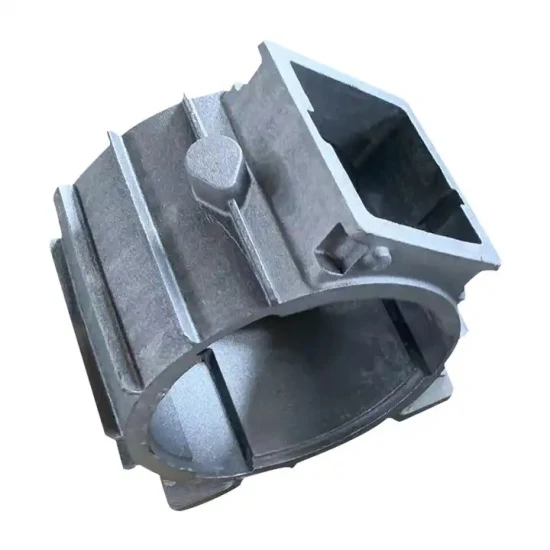The 25-Second Trick For Alcast Company
Wiki Article
Getting My Alcast Company To Work
Table of ContentsSome Ideas on Alcast Company You Should KnowThe smart Trick of Alcast Company That Nobody is DiscussingNot known Factual Statements About Alcast Company The Best Guide To Alcast CompanyAll About Alcast Company6 Easy Facts About Alcast Company Explained
The refined distinction hinges on the chemical web content. Chemical Comparison of Cast Aluminum Alloys Silicon promotes castability by lowering the alloy's melting temperature level and improving fluidity during casting. It plays a critical role in enabling intricate molds to be filled precisely. In addition, silicon contributes to the alloy's strength and put on resistance, making it important in applications where resilience is essential, such as vehicle components and engine parts.It additionally boosts the machinability of the alloy, making it less complicated to refine right into completed products. In this way, iron adds to the overall workability of light weight aluminum alloys.
Manganese adds to the strength of aluminum alloys and improves workability (aluminum casting company). It is typically used in functioned light weight aluminum items like sheets, extrusions, and profiles. The visibility of manganese help in the alloy's formability and resistance to breaking throughout construction procedures. Magnesium is a light-weight element that gives stamina and influence resistance to aluminum alloys.
The Best Guide To Alcast Company
It permits the production of lightweight parts with excellent mechanical homes. Zinc boosts the castability of aluminum alloys and helps manage the solidification procedure during spreading. It boosts the alloy's strength and firmness. It is frequently located in applications where intricate shapes and fine details are needed, such as attractive castings and certain automobile components.
The main thermal conductivity, tensile stamina, return stamina, and prolongation vary. Amongst the above alloys, A356 has the highest possible thermal conductivity, and A380 and ADC12 have the cheapest.
See This Report about Alcast Company

In precision spreading, 6063 is well-suited for applications where detailed geometries and premium surface area finishes are extremely important. Examples consist of telecommunication units, where the alloy's remarkable formability enables smooth and visually pleasing designs while keeping architectural stability. Similarly, in the Lights Solutions industry, precision-cast 6063 parts develop stylish and effective lights fixtures that require complex forms and excellent thermal performance.
It results in a finer surface coating and far better corrosion resistance in A360. In addition, the A360 shows remarkable prolongation, making it perfect for complicated and thin-walled parts. In precision casting applications, A360 is well-suited for industries such as Consumer Electronics, Telecommunication, and Power Tools. Its enhanced fluidity enables for complex, high-precision parts like smart device housings and interaction gadget housings.
The Greatest Guide To Alcast Company
Its special residential properties make A360 an important selection for precision spreading in these industries, boosting product longevity and high quality. Light weight aluminum alloy 380, or A380, is a widely made use of casting alloy with numerous distinctive features. It offers exceptional castability, making it an excellent option for precision spreading. A380 shows good fluidity when molten, making certain detailed and comprehensive mold and mildews are properly reproduced.
In accuracy spreading, light weight aluminum 413 radiates in the Customer Electronic Devices and Power Devices sectors. It's typically utilized to craft complex parts like smart device real estates, cam bodies, and power device cases. Its precision is amazing, with tight tolerances approximately 0.01 mm, ensuring flawless item setting up. This alloy's remarkable rust resistance makes it an exceptional option for outdoor applications, ensuring lasting, long lasting items in the stated markets.
Get This Report on Alcast Company
The aluminum alloy you select will substantially influence both the casting procedure and the buildings of see this page the last product. Since of this, you should make your decision thoroughly and take an informed approach.Determining the most ideal aluminum alloy for your application will mean weighing a vast range of qualities. The first classification addresses alloy characteristics that influence the manufacturing process.
Facts About Alcast Company Revealed
The alloy you choose for die spreading directly influences several facets of the spreading process, like just how very easy the alloy is to deal with and if it is prone to casting flaws. Hot fracturing, also recognized as solidification breaking, is a regular die casting issue for light weight aluminum alloys that can cause interior or surface-level rips or cracks.Particular aluminum alloys are much more prone to hot breaking than others, and your choice needs to consider this. It can harm both the cast and the die, so you should look for alloys with high anti-soldering residential properties.
Deterioration resistance, which is already a significant feature of light weight aluminum, can differ considerably from alloy to alloy and is a vital particular to take into consideration relying on the ecological problems your item will certainly be revealed to (aluminum foundry). Put on resistance is an additional residential or commercial property typically sought in aluminum products and can set apart some alloys
Report this wiki page